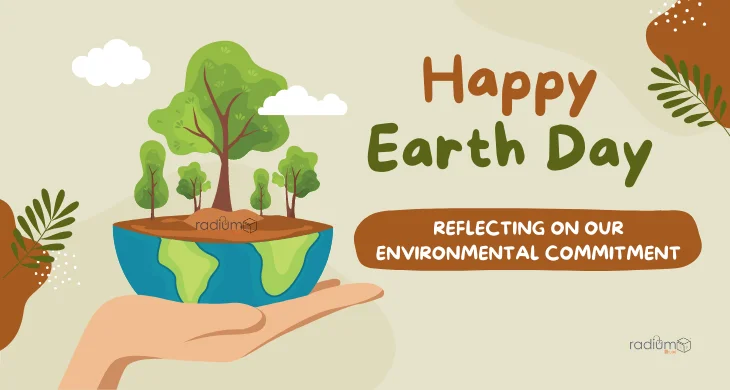Earth Day, which is celebrated every year on April 22nd, serves as a powerful reminder of our collective responsibility towards the environment. Originating in 1970, this day was established to raise awareness about environmental issues and advocate for sustainable practices. Over the decades, Earth Day has evolved into a global phenomenon, galvanizing millions of people worldwide to take action and make a positive impact on our planet. It’s a day when communities, organizations, and individuals come together to participate in various environmental initiatives, from tree planting and beach clean-ups to educational workshops and climate rallies. The significance of Earth Day lies not only in its celebration but also in its ability to inspire change and foster a deeper appreciation for the natural world around us.
The Importance of Environmental Awareness
Over the years, there has been a notable increase in awareness about environmental issues, thanks in part to initiatives like Earth Day. This annual event prompts us to pause and consider the consequences of our actions on the planet. It encourages us to reflect on the ways we consume resources, produce waste, and contribute to pollution. Earth Day serves as a catalyst for change, motivating individuals and communities to adopt eco-friendly habits and support sustainability efforts. From reducing our carbon footprint and conserving water to recycling and supporting renewable energy sources, there are numerous ways we can make a positive impact. By recognizing our role in environmental conservation and embracing responsible practices, we can work together towards building a greener and more sustainable future for generations to come.
Understanding this Year’s Theme
The theme for this year’s Earth Day, “Taking Action Together,” highlights the importance of collaboration and unity in tackling environmental issues. It underscores the idea that individual efforts, when combined, can lead to significant change. Whether it’s participating in community clean-up events, supporting local conservation projects, or advocating for policy changes, everyone has a role to play. This theme serves as a rallying cry, inspiring communities, organizations, and individuals to unite in their commitment to protecting the planet. It reminds us that by pooling our resources, sharing knowledge, and working towards common goals, we can amplify our impact and create lasting positive change. So, let’s join hands and take action together to safeguard our environment for current and future generations.
Global Initiatives and Partnerships
Global initiatives and partnerships are playing a crucial role in amplifying the impact of this year’s Earth Day theme, “Taking Action Together.” Organizations, governments, and communities around the world are joining forces to implement diverse projects aimed at environmental conservation. Tree planting campaigns are gaining momentum, not only helping to combat deforestation but also enhancing biodiversity and capturing carbon emissions. Clean-up drives are another impactful way to engage communities in environmental stewardship, encouraging people to take an active role in keeping their surroundings clean and free from pollution.
Furthermore, educational programs and workshops are being organized to raise awareness about sustainability and encourage eco-friendly practices. These initiatives provide valuable resources and information, empowering individuals to make informed decisions that benefit both the environment and their communities. Additionally, technological advancements are being leveraged to develop innovative solutions for environmental challenges, from renewable energy technologies to waste reduction strategies.
Overall, the collective efforts of these global initiatives and partnerships are instrumental in fostering a culture of environmental responsibility and inspiring people to take meaningful action to protect our planet. By working together, we can make a significant difference and create a more sustainable and resilient future for all.
Eco-Friendly Habits to Adopt
Adopting eco-friendly habits doesn’t require drastic changes; even small actions can make a big difference. By consciously reducing waste, such as using reusable bags and containers instead of disposable ones, we can minimize the amount of trash that ends up in landfills. Conserving energy is another simple yet effective way to contribute to a greener planet. Turning off lights when not in use, unplugging electronics, and using energy-efficient appliances can help reduce our carbon footprint and conserve natural resources.
Choosing sustainable products is also essential in promoting environmental conservation. Opting for items made from recycled materials or renewable resources supports eco-friendly manufacturing practices and reduces the demand for products that harm the environment. Additionally, supporting local businesses that prioritize sustainability can have a positive impact on both the community and the planet.
Incorporating these eco-friendly habits into our daily routines not only benefits the environment but also promotes a healthier and more sustainable lifestyle. By making mindful choices, we can all play a part in preserving the Earth for future generations.
Celebrating Small Wins
Celebrating our eco-friendly achievements, no matter how small they may seem, can create a ripple effect of positive change. When we share our successes, like starting a compost bin or opting for public transportation, it encourages others to follow suit. These small actions, when taken by many, can lead to significant reductions in waste and greenhouse gas emissions.
It’s heartening to see communities come together, supporting each other’s efforts and sharing tips on sustainable living. This sense of camaraderie fosters a collective spirit, inspiring more people to join the movement for a greener planet. By acknowledging and celebrating these small wins, we can build momentum and drive towards achieving larger, more impactful changes.
Remember, every eco-friendly choice we make contributes to a healthier environment and a brighter future for our planet. So, let’s celebrate our achievements, no matter how minor they may seem, and continue working together towards a more sustainable world.
Innovative Solutions for Sustainability
Technology has become a powerful ally in our quest for environmental conservation. Innovations in renewable energy, such as solar and wind power, offer cleaner alternatives to fossil fuels, reducing our carbon footprint. These technologies not only help combat climate change but also promote energy independence and resilience.
Smart waste management systems leverage advanced sensors and data analytics to optimize waste collection and recycling processes. By efficiently managing our waste, we can minimize environmental pollution and conserve valuable resources. Additionally, technologies like electric vehicles and energy-efficient appliances are making sustainable choices more accessible and affordable for consumers.
Furthermore, digital platforms and apps provide educational resources and tools to raise awareness about environmental issues and encourage eco-friendly behaviors. Technology’s role in environmental conservation is undeniable, offering practical solutions and empowering individuals, communities, and organizations to make a positive impact on our planet.
Tech-Driven Environmental Campaigns
Technology has revolutionized the way we approach environmental activism and awareness campaigns. With the widespread use of social media platforms, such as Facebook, Twitter, and Instagram, organizations can connect with millions of people worldwide in real-time. These platforms enable them to share compelling stories, impactful visuals, and educational content that resonate with audiences and inspire them to take action.
Apps dedicated to environmental causes offer interactive experiences, allowing users to participate in challenges, track their eco-friendly actions, and connect with like-minded individuals. These digital tools make it easier for people to get involved, whether it’s through signing petitions, donating to causes, or joining community events.
Online platforms host virtual events, webinars, and workshops that bring experts, activists, and the general public together to discuss pressing environmental issues and share insights on sustainable practices. By harnessing the power of technology, environmental campaigns can amplify their reach, engage diverse audiences, and drive meaningful change at a global scale.
Climate Change and its Impacts
Climate change poses a significant threat to our planet, leading to rising temperatures, extreme weather events, and sea-level rise. These changes disrupt ecosystems, endanger wildlife, and threaten the livelihoods of communities that depend on them. The consequences of climate change are not confined to a single region or country; they are felt globally, emphasizing the need for united action.
Addressing this complex issue demands collaboration on an unprecedented scale. Governments, businesses, and individuals must work together to reduce greenhouse gas emissions, promote renewable energy sources, and adopt sustainable practices. It requires policy changes, technological innovation, and shifts in consumer behaviour to create a more resilient and environmentally-friendly future.
Educating people about the impacts of climate change and empowering them to make informed choices is crucial. By raising awareness and fostering a culture of environmental stewardship, we can build momentum for collective action and make meaningful strides towards mitigating the effects of climate change.
Combating Pollution: A Collective Effort
Pollution is a pervasive problem that affects our environment on multiple fronts. Air pollution, often caused by industrial emissions and vehicle exhausts, contributes to respiratory illnesses and damages ecosystems. Water pollution, resulting from untreated sewage, industrial waste, and agricultural runoff, contaminates water sources, threatening aquatic life and human health. Land pollution, including littering and improper waste disposal, degrades soil quality and harms wildlife.
Addressing these pollution challenges requires a multi-faceted approach. Governments and organizations need to implement and enforce stringent environmental regulations to limit pollution levels. Investing in clean technologies and sustainable practices can help industries reduce their environmental footprint. At the individual level, adopting eco-friendly habits like reducing waste, conserving water, and using public transportation can make a difference.
Educating communities about the detrimental effects of pollution and promoting responsible behavior are also essential steps towards creating a cleaner, healthier planet for future generations.
Conclusion
As we celebrate Earth Day 2024, let’s reflect on our environmental commitment and the actions needed to protect our planet. Whether it’s adopting sustainable habits, supporting eco-friendly initiatives, or advocating for environmental policies, every effort counts. Together, we can make a difference and create a more sustainable future for all.
FAQs
Que: What is the history behind Earth Day?
Ans: The first Earth Day was observed in 1970, which is considered to be the start of the contemporary environmental movement.
Que: What is the theme for Earth Day 2024?
Ans: The theme for Earth Day 2024 is “Taking Action Together,” emphasizing collective action in environmental conservation.
Que: How can I contribute to Earth Day?
Ans: You can contribute to Earth Day by adopting eco-friendly habits, participating in environmental initiatives, and raising awareness about environmental issues.
Que: What are some eco-friendly habits to adopt?
Ans: Some eco-friendly habits to adopt include recycling, conserving energy, reducing waste, and using sustainable products.




